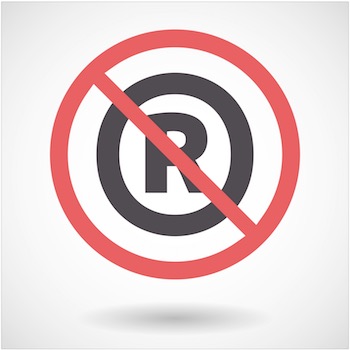 Legislating tobacco-style plain packaging for confectionery is a disproportionate response to the obesity crisis and strips companies of valuable trademarks, writes the Institute of Economic Affairs’ head of lifestyle economics.
Legislating tobacco-style plain packaging for confectionery is a disproportionate response to the obesity crisis and strips companies of valuable trademarks, writes the Institute of Economic Affairs’ head of lifestyle economics.
‘Plain packaging’ is a policy which eliminates all branding and visual design elements on products and forces manufacturers to use state-mandated colors and typefaces to create homogenized packaging with no differentiating features. Plain packaging is currently only applied to tobacco products in a handful of countries worldwide, but if health activists have their way that will change.
It is becoming clear that health activists have a broader agenda to use the ‘tobacco playbook’ in their efforts to apply extreme regulations to other sectors. Campaigners in Australia have called for plain packaging of children’s toys on the grounds that existing packaging encourages gender stereotyping.
With governments such as the UK passing tobacco-style ‘sin taxes’ on soft drinks and discussing tobacco-style advertising bans on fast food, we must wonder if the day will come when they demand tobacco-style packaging laws as well?
The governments of Australia, the UK, France, New Zealand and Norway have all passed legislation enforcing plain packaging on tobacco products, and signs indicate that confectionery will soon follow.
Already, the World Health Organisation (WHO) has targeted confectionery for stronger regulatory measures.
The Ontario Medical Association has already begun designing plain packaging for pizza boxes and soft drinks, replacing company logos with photos of diseased livers and gangrenous feet.
Fortunately, some governments are fighting the slippery slope that plain packaging represents.
Indonesia and the Dominican Republic have filed a lawsuit against Australia with the World Trade Organisation (WTO) and a lively debate has erupted in anticipation of the verdict.
If the WTO rules in favor of Australia, it potentially clears the way for other governments to implement similar laws and could redefine the intellectual property rights of consumer brands in other sectors such as Cadbury, Coca-Cola and Mars.
Neither side of the argument denies that very high levels of sugar consumption increase the risk of obesity and everyone is agreed on the need to look for solutions to diabetes and heart disease, but to strip a business of its valuable trademarks is neither a proportionate nor effective way to go about it.
For businesses, this regulation compromises the intellectual property of brands, encroaches on brand integrity and strips companies of the values and attributes associated with their brand – which may have taken decades to develop. Trademarks are important for consumers and businesses alike, functioning as a shorthand that informs people of the level of quality, reliability and consistency of a product.
Plain packaging legislation is based on the highly dubious belief that cigarette packaging encourages non-smokers – especially young people – to take up a famously unhealthy and expensive habit. In 2016 Britain was ranked as the third-worst country in the European Union on the Nanny State Index. A nanny state is characterised by the excessive interest and influence of the government on the lives and choices of its citizens. The introduction of plain packaging in the United Kingdom clearly falls under this category, infantilising consumers by stripping them of their freedom to make their own decisions in accordance to their own adult judgement. The dangers of tobacco consumption are no secret, and informed adults are able to make educated decisions about cigarettes regardless of packaging.
Claims have been made that plain packaging facilitates lower rates of tobacco consumption but they are not supported by empirical evidence. Moreover, studies such as the 2016 Nanny State Index – of which I am the editor – show that countries which impose rigorous regulations on alcohol and tobacco do not have lower rates of consumption. Nanny state regulations are generally ineffective; they intrude upon the private lives of individuals for little or no ‘public health’ gain.
The focus should instead be on the potential dangerous outcomes of plain packaging implementation. These measures could boost illicit trade and organised crime, hamper investment, affect jobs and damage small businesses, as has already happened in Australia. Of no less concern is the legal precedent set by plain packaging. The UK and Australian governments have effectively decided that the use of trademarks, branding and logos can be banned outright if they think it will discourage children from buying adult products – products that they are not legally entitled to purchase.
This should set alarm bell ringing among brand owners, particularly in the alcohol and gambling industries. If one industry is deprived of its intellectual property, all trademark owners are at risk. How long before plain packaging is introduced for fast food, pizza, breakfast cereal, alcohol, sugary drinks, and other ‘sinful’ consumer goods? The ‘public health’ lobby have already begun suggesting that this will be the next logical step.
Paternalistic governments are increasingly involved in the private lives of their citizens and plain packaging laws are a prime example. In contrast with nations that advocate free choice and respect the decision-making power of adults, plain packaging regulations infantilise British citizens, suggesting that without governmental interference adults are not able to make responsible decisions. The free market is founded on property rights, including intellectual property rights. It is deeply concerning so see governments sweep away these rights in the tobacco sector on little more than a whim. The question is, where will this trend take the government next?

![[IPWatchdog Logo]](https://ipwatchdog.com/wp-content/themes/IPWatchdog%20-%202023/assets/images/temp/logo-small@2x.png)

![[Advertisement]](https://ipwatchdog.com/wp-content/uploads/2024/03/IP-Copilot-Apr-16-2024-sidebar-700x500-scaled-1.jpeg)
![[Advertisement]](https://ipwatchdog.com/wp-content/uploads/2024/04/Patent-Litigation-Masters-2024-sidebar-early-bird-ends-Apr-21-last-chance-700x500-1.jpg)

![[Advertisement]](https://ipwatchdog.com/wp-content/uploads/2021/12/WEBINAR-336-x-280-px.png)
![[Advertisement]](https://ipwatchdog.com/wp-content/uploads/2021/12/2021-Patent-Practice-on-Demand-recorded-Feb-2021-336-x-280.jpg)
![[Advertisement]](https://ipwatchdog.com/wp-content/uploads/2021/12/Ad-4-The-Invent-Patent-System™.png)







Join the Discussion
5 comments so far.
Curious
October 19, 2016 07:16 pmIt is important to take away the freedom of such people if they will not do what their self-righteous, know-it-all peers believe is right. And never mind how often unquestionably right has proven to be disastrously wrong.
News flash … there is a BIG difference between banning a product and legislating plain packaging for the same products. Personally, I’m against banning most products. However, I’m perfectly OK with having plain packaging for certain products — the use of which causes more damage to society than good.
Mr. Summerfield cannot understand why I do not want to be under his control.
Like Mr. Summerfield, I also lost a parent far too early because a smoking-related illness. Smoking is an addiction that kills — something the tobacco companies have known for a very long time. Had the government stood up to big tobacco 60 years ago, my family and I could have been saved a lot of heartache.
I won’t attempt to be as eloquent as Mr. Summerfield, but the one’s “free choice” oftentimes has an impact on society. In those instances where the impact is negative, society has a right to regulate those choices. If you don’t want to live with the norms of our society, then you are free to move elsewhere.
Mark Summerfield
October 19, 2016 04:34 pm@AttorneyInFact, it seems to me that you are the one being “self-righteous” (and from behind a mask of anonymity).
I do not control anybody. The laws in Australia do not prevent anybody from choosing to smoke (however irresponsible a decision that may be). The laws regarding smoking in enclosed public spaces allow the vast majority of Australians (and their children) the freedom to breathe air that is not polluted by the carcinogens of smokers. It is about balancing legitimate freedoms, not denial of choice.
You don’t know me, so you have no idea what my thoughts are generally on the legitimacy, or otherwise, of various forms of Hegel restraint on what might be regarded as inalienable personal freedoms. What I will tell you, however, is this. Last year my mother died of lung cancer. The year before my father died from complications of other smoking-related health problems. Both were only 76.
Do I wish that neither of them had been smokers, and they were both still with us? Yes, of course I do. Do I think that they should have been denied the choice? No. They simply should have made better decisions. The legal and regulatory regime in Australia is supporting people of future generations in making better decisions. And that is a good thing.
AttorneyInFact
October 19, 2016 03:30 pmIt is not that people cannot make responsible decisions. The problem is that some people will make irresponsible decisions if given free choice. It is important to take away the freedom of such people if they will not do what their self-righteous, know-it-all peers believe is right. And never mind how often unquestionably right has proven to be disastrously wrong.
Unfortunately, the kind of people who want to control their neighbors are not the kind of people I want to be ruled by. Mr. Summerfield cannot understand why I do not want to be under his control, but I would bet he would not want to submit to me ruling his life. Funny how being on the receiving end of tyranny brings such immediate focus to the issue while being on the giving end makes people feel noble.
Benny
October 19, 2016 05:21 am“informed adults are able to make educated decisions about cigarettes”. Statistics on smoking rates tell us that this is not happening for 15-20 % of the time. Restricting the sale of a carcinogenic product intended for human consumption is not so much the trait of a “nanny state” than a legitimate health concern, in the same realm as banning lead in gasoline.
Mark Summerfield
October 19, 2016 05:09 amOh, here we go. Once again, someone using false and/or exaggerated reports from Australia to support the tired old “slippery slope” argument against plain packaging for tobacco products.
While this country has its fair share of activists with fringe ideas (as does every other country), nobody with any credibility or political clout has seriously suggested introducing plain packaging for any other products. It is not on the government’s agenda, nor do I expect that it ever will be.
As for the claim that plain packaging “could boost illicit trade and organised crime, hamper investment, affect jobs and damage small businesses, as has already happened in Australia” – citation, please. Smoking rates are now around or below 15% across most of Australia, due to a range of public health initiatives, including plain packaging. While some sellers of tobacco products that are insufficiently diversified are clearly seeing declines in sales, this cannot be attributed solely to advertising restrictions. At the same time, better public health, and the greater enjoyment of public spaces by the 85% of the population who do not smoke, produces economic benefits for many small businesses – including restaurants and bars.